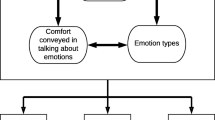Abstract
I discuss teaching as emotional practice and how that practice is tied to teacher identities. My focus in this chapter is on the first stage of professional induction – the student-teaching experience and how teachers communicate emotions. In other words, I explore the question: what emotions are “appropriate,” and when should they be expressed? I argue that it not unusual for college supervisors and cooperating teachers to empathize with student teachers’ emotions, but assume their emotions can be adjusted with reason or easily ignored. Attempts to separate emotions from or to join them with teaching practice have implications for teacher identity and development. Through a synthesis of these related bodies of literature with examples from my own research on student teachers’ emotional experiences, I examine some of the possible trajectories for new teachers as they enter the emotional practice of teaching.
Access this chapter
Tax calculation will be finalised at checkout
Purchases are for personal use only
Similar content being viewed by others
References
Boler M (1999) Feeling power: emotions and education. Routledge, New York
Cole AL, Knowles JG (1993) Shattered images: understanding expectations and realities of field experiences. Teach Teach Educ 9:457–471
Darling-Hammond L, Youngs P (2002) Defining “highly qualified teachers”: what does “scientifically-based research” actually tell us? Educ Res 31:13–25
Denzin NK (1984) On understanding emotion. Jossey-Bass, San Francisco
Dove MD (Fall, 2004) Teacher attrition: a critical American and international education issue. Delta Kappa Gamma Bull 71(1):8–30
Flores MA, Day C (2006) Contexts which shape and reshape new teachers’ identities: a multi-perspective study. Teach Teach Educ 22:219–232
Goldstein LS, Lake VE (2003) The impact of field experience on preservice teachers’ understandings of caring. Teach Educ Q 30:115–132
Hargreaves A (2000) Mixed emotions: teachers’ perceptions of their interactions with students. Teach Teach Educ 16:811–826
Hargreaves A, Earl L, Moore S, Manning S (2001) Learning to change: teaching beyond subjects and standards. Jossey-Bass, San Francisco
Isenbarger L, Zembylas M (2006) The emotional labour of caring in teaching. Teach Teach Educ 22:120–134
Kardos SM, Johnson SM (2007) On their own and presumed expert: new teachers’ experience with their colleagues. Teach Coll Record 109:2083–2106. http://www.tcrecord.org. Retrieved 26 Dec 2007
Knowles JG, Holt-Reynolds D (1991) Shaping pedagogies through personal histories in preservice teacher education. Teach Coll Record 93:87–113
Lortie DC (1975) Schoolteacher. The University of Chicago Press, Chicago
Macdonald D (1999) Teacher attrition: a review of the literature. Teach Teach Educ 15:835–848
Newberry M, Davis HA (2008) The role of elementary teachers’ conceptions of closeness to students on their differential behaviour in the classroom. Teach Teach Educ 24:1965–1985
O’Conner KE (2008) “You choose to care”: teachers, emotions and professional identify. Teach Teach Educ 24:117–126
Oplatka I (2007) Managing emotions in teaching: toward an understanding of emotional displays and caring as nonprescribed role elements. Teach Coll Record 109(6). http://www.tcrecord.org. Retrieved 22 May 2007; pp 1374–1400
Ria L, Sève C, Saury J, Theureau J, Durand M (2003) Beginning teachers’ situated emotions: a study of first classroom experiences. J Educ Teach 29:219–233
Rinke CR (2008) Understanding teachers’ careers: linking professional life to professional path. Educ Res Rev 3:1–3
Swanson GE (1989) On the motives and motivation of selves. In: Franks DD, McCarthy ED (eds) The sociology of emotions. JAI Press, Greenwich, CT
Tickle L (1991) New teachers and the emotions of learning teaching. Cambridge J Educ 21:319–329
Weiss EM (1999) Perceived workplace conditions and first-year teachers’ morale, career choice commitment, and planned retention: a secondary analysis. Teach Teach Educ 15:861–879
Zembylas M (2003) Caring for teacher emotion: reflections on teacher self-development. Stud Philos Educ 22:103–125
Zembylas M (2005) Teaching with emotion: a postmodern enactment. Information Age Publishing, Greenwich, CT
Author information
Authors and Affiliations
Corresponding author
Editor information
Editors and Affiliations
Rights and permissions
Copyright information
© 2009 Springer Science+Business Media, LLC
About this chapter
Cite this chapter
Meyer, D.K. (2009). Entering the Emotional Practices of Teaching. In: Schutz, P., Zembylas, M. (eds) Advances in Teacher Emotion Research. Springer, Boston, MA. https://doi.org/10.1007/978-1-4419-0564-2_5
Download citation
DOI: https://doi.org/10.1007/978-1-4419-0564-2_5
Published:
Publisher Name: Springer, Boston, MA
Print ISBN: 978-1-4419-0563-5
Online ISBN: 978-1-4419-0564-2
eBook Packages: Humanities, Social Sciences and LawEducation (R0)




